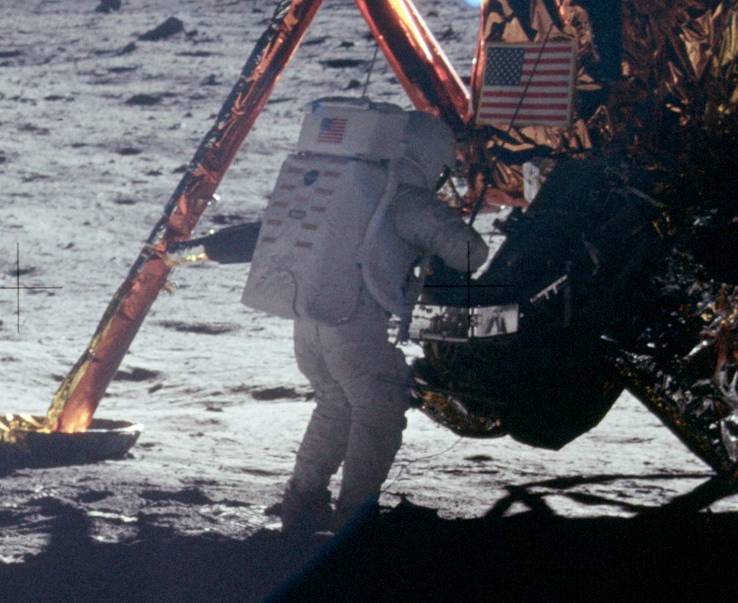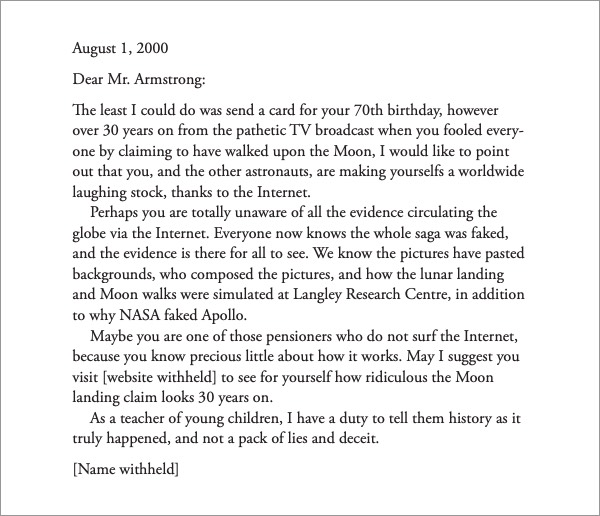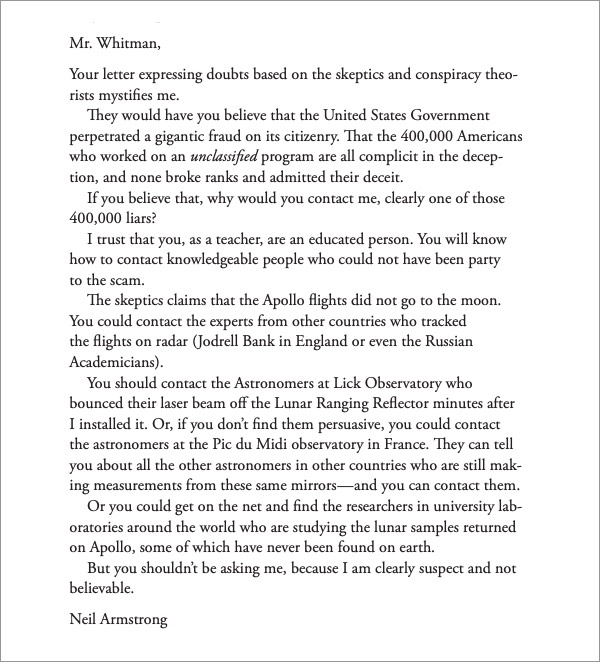
Image via Wikimedia Commons
People have been graduating from college this year who are as old as the role of internet truther. It is a venerable hobby (some might call it a disease) leading to increasing numbers of people to bizarre conclusions drawn from dubious evidence proffered by spurious sources; people convinced that some wild allegation or other must be true because they saw it on the Internet, shared by people they knew and liked.
Twenty years ago, one pioneering truther wrote Mr. Neil Armstrong to put him in his place about that bugbear, the faked moon landing. The author of the letter, a Mr. Whitman, identifies himself as a “teacher of young children” charged with “a duty to tell them history as it truly happened, and not a pack of lies and deceit.” His letter shows some difficulty with grammar, and even more with critical thinking and standards of evidence.

Mr. Whitman makes his accusations with certainty and smugness. “Perhaps you are totally unaware,” he writes, “of all the evidence circulating the globe via the Internet,” which he then summarizes.
He also sends Neil Armstrong—an astronaut who either walked on the Moon or engaged in perhaps the greatest conspiracy in history—a URL, “to see for yourself how ridiculous the Moon landing claim looks 30 years on.” Whitman sent Armstrong the letter on the astronaut's 70th birthday.

Armstrong’s response, via Letters of Note, can be read in full above. Perhaps Mr. Whitman learned something from the exchange—or had a moment of clarity about his methods of investigation. One can hope. In any case, Armstrong’s unsparing reply serves as a template for responding—should someone be so inclined—to internet truthers armed with wild conspiracy theories 20 years later. These letters have been collected in A Reluctant Icon: Letters to Neil Armstrong.
Related Content:
Stanley Kubrick Faked the Apollo 11 Moon Landing in 1969, Or So the Conspiracy Theory Goes
Watch the Original TV Coverage of the Historic Apollo 11 Moon Landing: Recorded on July 20, 1969
Josh Jones is a writer and musician based in Durham, NC. Follow him at @jdmagness
Neil Armstrong Sets Straight an Internet Truther Who Accused Him of Faking the Moon Landing (2000) is a post from: Open Culture. Follow us on Facebook, Twitter, and Google Plus, or get our Daily Email. And don't miss our big collections of Free Online Courses, Free Online Movies, Free eBooks, Free Audio Books, Free Foreign Language Lessons, and MOOCs.
from Open Culture https://ift.tt/3i77zSW
via Ilumina
Comments
Post a Comment